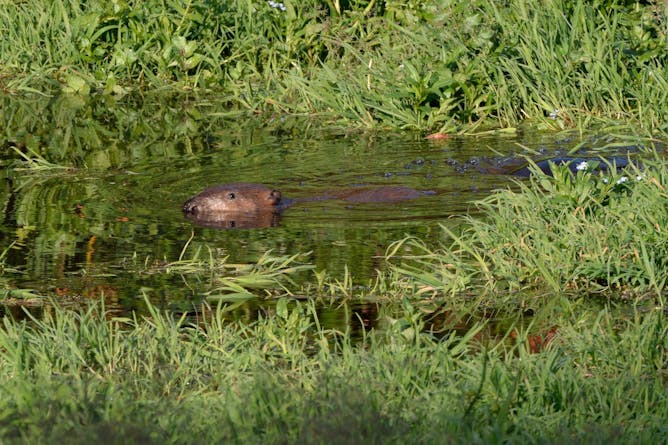|
|
|
|
In late March, we were told that a “double mutant” coronavirus variant had been discovered in India. Now we’re told a “triple mutant” variant stalks the streets of Yorkshire. People are afraid that the vaccines might not work against these and other new variants, and we’ll soon be back to square one.
But should we be worried about the seemingly endless genome shuffling this virus seems to be doing of late? Luke O’Neill, a professor of biochemistry at Trinity College Dublin, says no “variant of high consequence” – variants against which current medical measures are failing – has been discovered yet. In fact, a new preprint study from Public Health England shows that the Pfizer and AstraZeneca vaccines are highly effective against the variants that originated in the UK (B117) and India (B16172).
Elsewhere, we’ve been learning the best ways to rewild a country (tip: you don’t always have to reintroduce wolves), and why the history of British political sleaze sounds a warning about the current government.
A huge thank you to all our readers who have donated to The Conversation. Now in our campaign’s final week, if you value what we do and are able to make a donation then any amount you can spare will help us to continue producing the interesting and insightful writing you enjoy.
Donate now
|
Clint Witchalls
Health + Medicine Editor
|

|
|

Guy Bell/Alamy Stock Photo
Luke O'Neill, Trinity College Dublin
Variants of interest and variants of concern seem to be popping up at an alarming rate. But how many of them do we really need to worry about?
|

A Eurasian beaver swimming in Devon’s River Otter catchment, UK.
Nick Upton/Alamy Stock Photo
Sophie Wynne-Jones, Bangor University; Ian Convery, University of Cumbria; Steve Carver, University of Leeds
By studying where rewilding has worked well around the world, we've worked out the dos and don'ts.
|

Lord Brougham as John Bull, calling on the Prince Regent (later George IV) to curb his extravagance.
Alamy/World History Archive
Ian Cawood, University of Stirling
The excesses of political leaders have always needed checking.
|
Science + Technology
|
-
James Wright, Alan Turing Institute
Police, private security and sporting events are turning to a growing but largely unregulated industry that claims its technology can detect suspicious individuals.
-
Adelina Ilie, University of Bath
Quantum communication has the potential to provide truly secure global communications.
-
Marianna Korsos, Aberystwyth University; Huw Morgan, Aberystwyth University
Alfvén waves, first proposed 80 years ago, could explain why the sun's atmosphere is so much hotter than its surface.
|
|
Politics + Society
|
-
Kevork Oskanian, University of Birmingham
Facing political turmoil, a weak and unpopular prime minister and indifferent allies in Moscow, Armenia faces an unpalatable choice.
-
Susan Milner, University of Bath
Gender pay gap reporting was made mandatory in 2016. Could the same be done for tracking salaries by race?
|
|
Environment + Energy
|
-
Kurtis Boyer, University of Saskatchewan
Pandemic viruses arise from raising, harvesting and eating animals. Policy strategy for averting the next pandemic should include supporting those already seeking to make plant-based dietary changes.
|
|
Health + Medicine
|
-
Ronald D. Fricker Jr., Virginia Tech
Record-keepers have a pretty good sense of how many people have died. But figuring out the cause of those deaths is a lot trickier – and that's why reasonable modelers can disagree.
|
|
Arts + Culture
|
-
Richard Baka, Victoria University
No sightseeing, cheering, singing or (at least officially) sex. This is what an Olympic Games during a pandemic could look like.
|
|
| |
Featured events
|

|
This is an online event, This is an online event, East Sussex, BN1 9RH, United Kingdom of Great Britain and Northern Ireland — University of Sussex
|

|
Online, Birmingham, Warwickshire, B15 2TT, United Kingdom of Great Britain and Northern Ireland — University of Birmingham
|

|
Sustainable Places Research Institute, Cardiff University, Cardiff, Cardiff [Caerdydd GB-CRD], CF10 3BA, United Kingdom of Great Britain and Northern Ireland — Cardiff University
|

|
Online, Birmingham, Warwickshire, B15 2TT, United Kingdom of Great Britain and Northern Ireland — University of Birmingham
|
|
|
|
| |
| |
| |
| |
| |
|
|
|
|
|
|
|